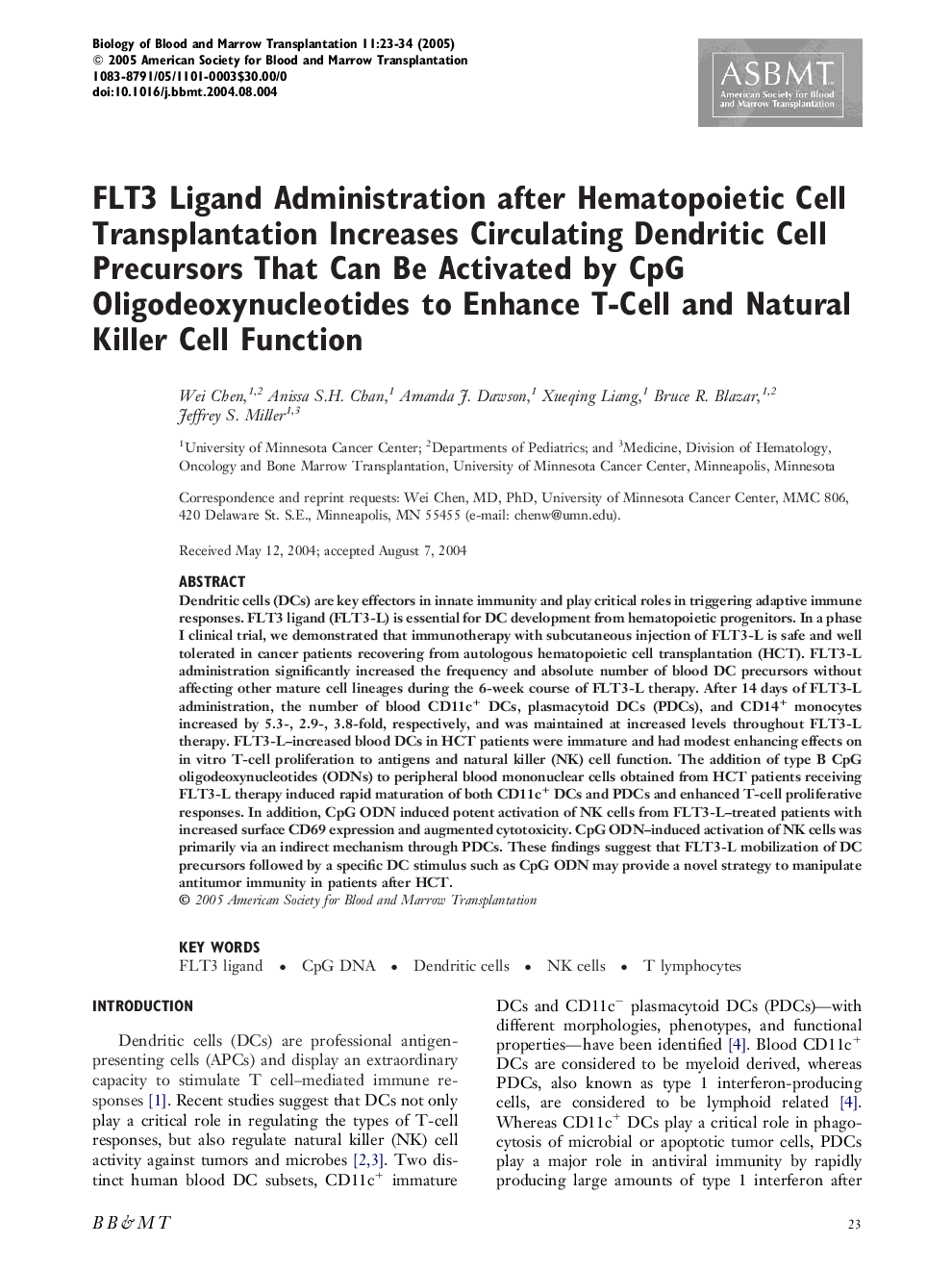| Article ID | Journal | Published Year | Pages | File Type |
|---|---|---|---|---|
| 9904395 | Biology of Blood and Marrow Transplantation | 2005 | 12 Pages |
Abstract
Dendritic cells (DCs) are key effectors in innate immunity and play critical roles in triggering adaptive immune responses. FLT3 ligand (FLT3-L) is essential for DC development from hematopoietic progenitors. In a phase I clinical trial, we demonstrated that immunotherapy with subcutaneous injection of FLT3-L is safe and well tolerated in cancer patients recovering from autologous hematopoietic cell transplantation (HCT). FLT3-L administration significantly increased the frequency and absolute number of blood DC precursors without affecting other mature cell lineages during the 6-week course of FLT3-L therapy. After 14 days of FLT3-L administration, the number of blood CD11c+ DCs, plasmacytoid DCs (PDCs), and CD14+ monocytes increased by 5.3-, 2.9-, 3.8-fold, respectively, and was maintained at increased levels throughout FLT3-L therapy. FLT3-L-increased blood DCs in HCT patients were immature and had modest enhancing effects on in vitro T-cell proliferation to antigens and natural killer (NK) cell function. The addition of type B CpG oligodeoxynucleotides (ODNs) to peripheral blood mononuclear cells obtained from HCT patients receiving FLT3-L therapy induced rapid maturation of both CD11c+ DCs and PDCs and enhanced T-cell proliferative responses. In addition, CpG ODN induced potent activation of NK cells from FLT3-L-treated patients with increased surface CD69 expression and augmented cytotoxicity. CpG ODN-induced activation of NK cells was primarily via an indirect mechanism through PDCs. These findings suggest that FLT3-L mobilization of DC precursors followed by a specific DC stimulus such as CpG ODN may provide a novel strategy to manipulate antitumor immunity in patients after HCT.
Related Topics
Life Sciences
Biochemistry, Genetics and Molecular Biology
Cancer Research
Authors
Wei Chen, Anissa S.H. Chan, Amanda J. Dawson, Xueqing Liang, Bruce R. Blazar, Jeffrey S. Miller,
